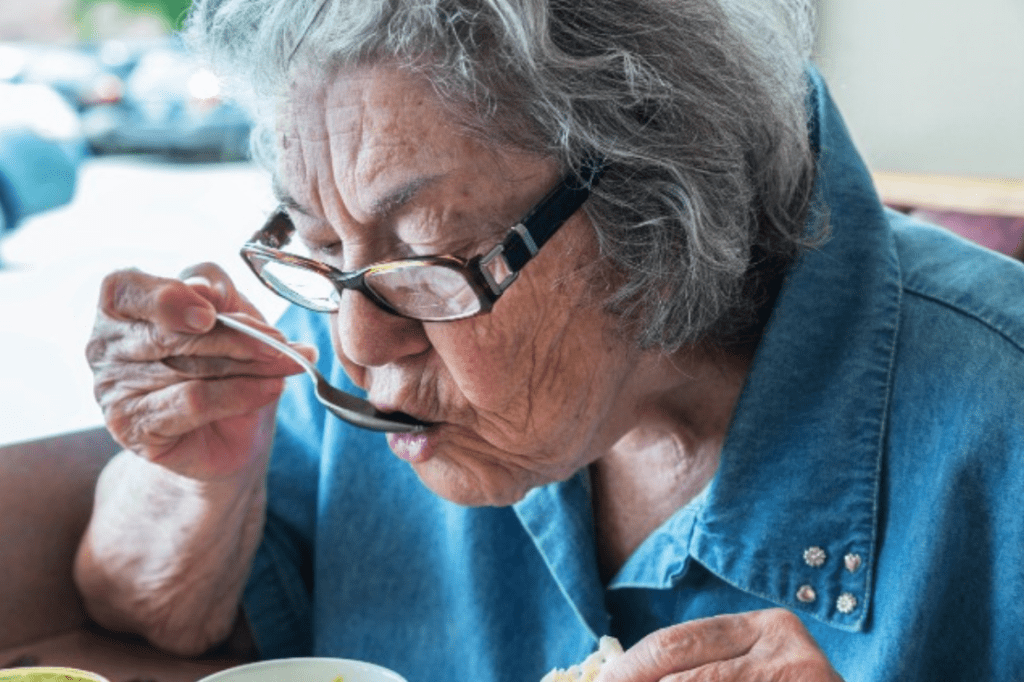For people experiencing homelessness, the hot meals option is about much more than food; it’s about basic human dignity.

A Chicago mother experiencing homelessness and trying to feed and shelter her children was faced with a difficult reality. The shelter she found space in served beef and pork, which two of her kids are allergic to. “We couldn’t bring outside food in, but when somebody was cooking, we had to (eat) what they had fixed. The problem with that was my two sons couldn’t eat,” she explained.
This mother’s dilemma was exacerbated by a provision in the law that prevents people receiving nutrition assistance from using it on hot, prepared meals. By law, she couldn’t secure a meal from a restaurant or a prepared meal from a grocery store for her children. A measure currently in the Illinois Senate could change that.
For decades, the Supplemental Nutrition Assistance Program (SNAP) has been one of the most effective tools for fighting hunger in America. Eligible households receive a monthly allotment that they can use to buy groceries. In most states, SNAP benefits can only be used to buy foods made to be cooked at home, and participants are barred from buying prepared or hot foods with their SNAP benefits.
SNAP is critical for millions of families across the country, but the restriction on hot foods causes the program to fall short for people who are already particularly susceptible to hunger: people who are elderly, struggling with a disability, or experiencing homelessness. Traditional use of SNAP isn’t effective for people without homes, those that don’t have access to cooking or food storage facilities, and those with temporary or permanent physical barriers that limit their ability to use kitchens safely or effectively. Adding a hot meals option to the SNAP program for members of these groups would mitigate their challenges in meeting their nutritional needs and prevent them from going hungry.
The Shriver Center on Poverty Law, Chicago Coalition for the Homeless, and Heartland Alliance have proposed a bill in the Illinois General Assembly that would add a hot meals option to the SNAP program for members of certain populations. The Hot Meals for Hungry Illinoisans Act, HB3343, would allow SNAP recipients that are elderly, struggling with a disability, or experiencing homelessness — and only these groups — to use their SNAP benefits to buy hot meals at participating restaurants and prepared food at grocery stores that opt-in to the program.
Hunger among elderly Americans has increased 45% since 2001, according to Feeding America. Nearly 5 million senior citizens currently face hunger. Seniors are often forced to make impossible choices between food and essential health care or medicine, even if they have chronic illnesses. Patients unable to adhere to their medical therapy face needless suffering solely because they do not have access to enough food. People struggling with a disability are confronted by similar challenges.
One-third of households with a working-age adult who is unable to work due to a disability are food insecure, according to the U.S. Department of Agriculture. Even when the disability does not “necessarily prevent employment,” one-quarter of those households struggle with food insecurity. The rate of food insecurity is similar in Chicago. In the Chicago Metropolitan Area, 31% of households with a working-age member with a disability are food insecure, according to a 2017 report from the Greater Chicago Food Depository. It’s imperative that we afford every available option under the SNAP program to these households to avoid the continued diminished effectiveness of an anti-hunger program designed to help them eat.
For people experiencing homelessness, the hot meals option is about much more than food; it’s about basic human dignity. The hot meals option would allow people experiencing homelessness to purchase a meal in a sanitary, safe environment and enjoy their food as would any other customer of the establishment. For people who struggle to find access to a public restroom, need shelter from extreme cold, and frequently face unnecessary police intervention for “loitering” or “disturbing the peace,” this bill will provide access to participating private establishments where people using SNAP must be treated as non-SNAP customers.
The Hot Meals Act would also help people who work and/or attend school. Kitchens in shelters often close early. “Say you are coming in from work or something, you can’t cook nothing. You can’t warm up your meals or anything, and you need to be in your room at a certain time, sometimes. It’s a good program and everything, but I feel like fast food would be [a] good [option] so if you know you’re not going to be in by the time the kitchen closes, you could already have eaten something,” a person staying in a shelter explained.
The experiences of these members of our community reveal the importance of this commonsense option. Illinois should set a national example. The passage of HB3343 would be a crucial step in expanding access to food for hungry Illinoisans and add immeasurable value to the SNAP program for those that need it most. Help us engender support by contacting your state senator.

Everyone deserves access to affordable, comprehensive, culturally appropriate healthcare, no matter their income, race, gender, or where they're from.